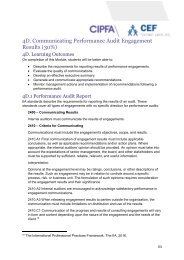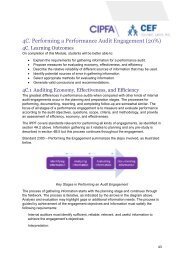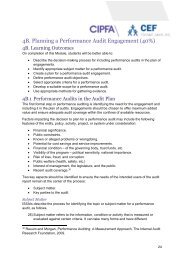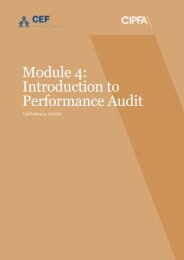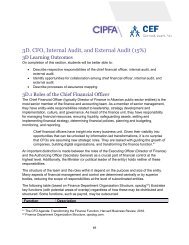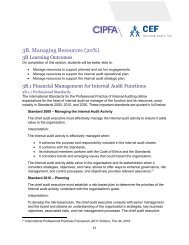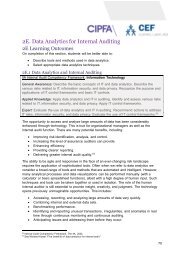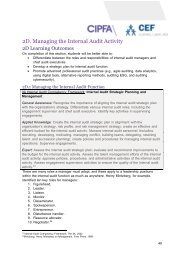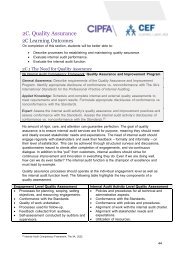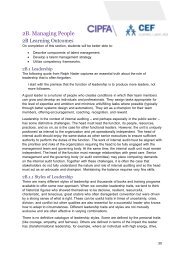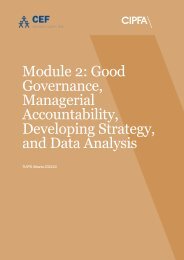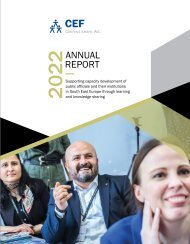TIAPS Module 1 Audit and Assurance workbook
You also want an ePaper? Increase the reach of your titles
YUMPU automatically turns print PDFs into web optimized ePapers that Google loves.
Common controls for fraud relating to cash <strong>and</strong> financial transactions, for example, include:<br />
• Segregation of incompatible duties. Responsibility for custody of an asset,<br />
authorization for its deployment, <strong>and</strong> recording its usage should ideally be assigned<br />
to different individuals. Where this is not possible because of a shortage of resources<br />
then compensating controls, including increased supervision, regular reconciliations,<br />
stock takes, <strong>and</strong> scrutiny by inspectors <strong>and</strong> auditors, should be applied.<br />
• Centralization of cash collection points.<br />
• Individual cash drawers for each employee responsible for collecting money to assist<br />
with traceability <strong>and</strong> accountability for errors <strong>and</strong> fraud.<br />
• Endorsing checks when they are received to limit opportunities for misuse.<br />
• Maintaining sequential receipts.<br />
• Timely recording of transactions.<br />
• Timely deposits of cash.<br />
• Physical security of blank checks.<br />
• Regular reconciliations.<br />
Figure: Segregation of Incompatible Duties<br />
Many of the controls described above are needed for managing risks related to human,<br />
system, <strong>and</strong> process errors as well as the possibility of fraud. To ensure the general integrity<br />
of the control environment, there should be clear tone at the top, a well-defined code of<br />
conduct to confirm behavioral expectations, consistent <strong>and</strong> timely h<strong>and</strong>ling of breaches,<br />
continuous awareness raising <strong>and</strong> regular training, documented policies <strong>and</strong> processes, <strong>and</strong><br />
opportunities for anonymous whistleblowing.<br />
A defining characteristic of fraud is that such acts are deliberate. Frauds are not errors<br />
caused by bad luck or incompetence. Individuals acting alone or with others usually have a<br />
need or an incentive (motivation) to commit fraud (such as economic or social hardship,<br />
ambition, or duress), identify an opportunity to take an unfair <strong>and</strong> unwarranted advantage of<br />
60





